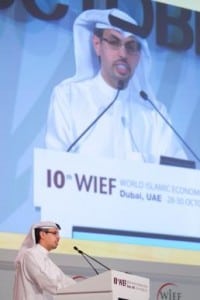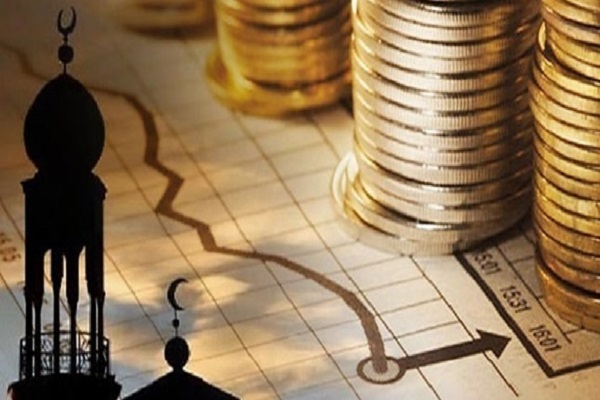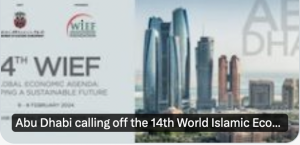Dubai, UAE, October 30, 2014
Defining Dubai as the Capital of Islamic Economy, 10th WIEF concludes with a focus on partnerships and cross-border trade

Dubai Chamber unveils specialised unit to support research and studies on Islamic economy
‘Dubai, the Capital of Islamic Economy’ has set the pace for a new era of growth and evolution in Islamic finance and cross-border trade with the 10th World Islamic Economic Forum (WIEF), organised by the WIEF Foundation and the Dubai Chamber of Commerce & Industry, concluding after three days of deliberation.
The forum called for greater partnerships and innovation, underpinned by Islamic values, to improve productivity, competitiveness and incomes that are essential to the stability and wellbeing of Muslims all over the world.
Underlining Dubai’s central status in accelerating global partnerships, the Forum served as a definitive platform to accomplish the global vision of His Highness Sheikh Mohammed bin Rashid Al Maktoum, UAE Vice President and Prime Minister and Ruler of Dubai, to unlocking the potential of the Islamic economy.
The start of a new chapter
In his closing address, HE Hamad Buamim, President & CEO, Dubai Chamber of Commerce & Industry , the co-organisers, said that the Forum marked the “start of a new chapter of cooperation between Dubai and the world, as part of Dubai: Capital of Islamic Economy vision.”
Providing an overview of the discussions, HE Buamim said that to accelerate improvements in the Islamic economy, concerted efforts need to be taken on several key areas. “One is to enhance cooperation in terms of standards and certification. Establishing a unified regulatory authority to provide the framework for standards across halal industries will significantly accelerate growth. Likewise, we need to see increased cooperation and partnership between the public and private sectors. This is already happening with great success here in Dubai.”
HE Buamim also called for increased innovation in terms of services and products available for modern Muslims, which he said was raised at Dubai Chamber ‘s first Global Islamic Economy Summit last year.
“Innovation is the catalyst for major change and improvements that will facilitate new business opportunities, particularly in Islamic finance. Knowledge-sharing and developing smart content are investments that we need to make now. We must also harness technology, which is driving progress in the global economy, to ensure the future development of halal industries.”
Calling the Muslim world to work together to ensure that the momentum gained from the Dubai Forum is carried forward, HE Buamim said that Dubai Chamber is committed to working with Islamic organisations to increase business opportunities across the full spectrum of the Islamic economy.
He also said that the second Global Islamic Economy Summit will be held in November 2015. HE Buamim also thanked the World Islamic Economic Forum Foundation for their partnership and wished them all success for the 11th Forum to be held from October 27 to 29, 2015, in Kuala Lumpur, Malaysia.
Hon. Dato’ Sri Mustapa Mohamed, Minister of International Trade & Ministry of Malaysia, underlined the role of WIEF in bringing together not only Muslim countries but also promoting business collaborations with the rest of the world. He highlighted the soft values that the event fosters including understanding and tolerance.
Hon. Tun Musa Hitam, Chairman of WIEF Foundation, said the Forum was a huge success led by the power of collaboration, cooperation and teamwork, and Dubai’s ability to host large-scale events. He said that the 10th WIEF has achieved the objective of “bringing together participants of diverse backgrounds to engage in thought-provoking discussions on issues ranging from global economics, finance, investments, education, women, youth and the arts in one mega-gathering.”
?Addressing the closing session, H.E. Moon Soon Choi, Governor of Gangwon Province, South Korea; Rafael Navas Ferrer, First Deputy Mayer, City of Cordoba, Spain; and Amb. George Hara, Chairman of Alliance Forum Foundation, Japan, thanked the Dubai Chamber of Commerce & Industry and the WIEF Foundation, organisers of the 10th WIEF, for creating a unique platform to discuss the possibilities offered in Islamic economy.
Key Messages
Among the key messages highlighted at the Forum included Dubai’s initiatives to become the global hub of Islamic economy and innovation as well as serving as a gateway to Africa. The event underlined the importance of universal education and literacy to ensure inclusive economic growth; the development of transport and infrastructure to unlock economic potential and the need to develop localised technologies in health, food and agriculture for poverty alleviation.
The event underlined the need to promoting a more tolerant and inclusive environment for equitable partnerships and mutual growth; the importance of business partnerships in building genuine global human relationship; and the need to invest in natural and human resources development, including the strategy for accomplishing it and improving the way nations integrate locally and globally so as to promote economic growth.
Forum recommendations
The Forum recommended the establishment of the WIEF-IDB International Working Group on Waqf Development that acts as an information depository centre as well as a clearing house of information. It also urged to continue to promote the development of Islamic Finance to bridge economies and enhance economic activity and growth.
The Forum resolved to continue to initiate and enhance discussions on the development of global Halal industry, and to provide a platform for the development of borderless education and innovative technology. The Forum also recommended to engage, promote and enhance the development of women and youth in entrepreneurship.
Record participation
A record 3,215 delegates from 108 countries – the largest to date in the history of the Forum – took part in the Dubai event, which featured 181 expert speakers who discussed 29 key factors related to the Islamic Economy.
Eight global Leaders, 12 Ministers, four Central Bank Governors, leading corporate figures, businesswomen and young entrepreneurs, key decision makers, thought leaders, academia and representatives of the civil society, and creative artists attended the Forum.
Under the theme ‘Innovative Partnerships for Economic Growth,’ the event also served as a platform for 150 bilateral meetings to drive cooperation and partnership across the Muslim and non-Muslim worlds.
Global leadership
Among the global leaders who addressed the sessions at the Forum included: Hon. Dato’ Sri Mohd Najib Tun Abdul Razak, Patron of the WIEF Foundation and Prime Minister of Malaysia; H.E. Nursultan Nazarbayev, President of the Republic of Kazakhstan; H. E. Md Abdul Hamid, President of the People’s Republic of Bangladesh; H.E. Kay Rala Xanana Gusmao, Prime Minister of Democratic Republic of Timor-Leste; H.E. Xavier Bettel, Prime Minister of Grand Duchy of Luxembourg and H.E. Dr Ahmad Mohamed Ali, President of the Islamic Development Bank.
Also in attendance were H.E. Danny Faure, Vice President of the Republic of Seychelles and H.E. Azim Ibrohim, the Deputy Prime Minister of the Republic of Tajikistan.
The Forum witnessed expert panel discussions on key issues including alternative economic models for developing nations, global risks in business and Islamic finance as an enabler of global trade. Other topics of discussions included Sukuk development, socialising education, funds for SMEs, Halal vaccines, Halal supply chain, water scarcity, poverty alleviation through Zakat and Waqf, women entrepreneurship, young talents, smart infrastructure and technological innovation for humanitarian crises.
The parallel programmes of Panel Discussions, Masterclasses, Business Exchange, Ideapad, Special Programmes, Sponsors Programmes, Investment Programmes, MOCAFest and the Business Networking Breakfast generated dialogue on opportunities for international business and economic collaboration.
At WIEF, Dubai Chamber also launched a specialised unit to support research and studies on Islamic economy, which will utilise digital platforms and smart solutions to support the local business community to integrate itself within the Islamic economy system. It will enable a larger group of businesses to benefit from the Islamic economy culture and help transfer knowledge between partners at the local, regional and international levels.
Additionally, the 7th MOCAfest (Marketplace of Creative Arts), the WIEF Foundation’s arts and culture festival that was held on the sidelines of the 10th WIEF, highlighted art as potential business platforms and showcased how Islamic fashion has turned out from the shadows to create new fashion trends.
For more information, visit: www.10thwief.org



